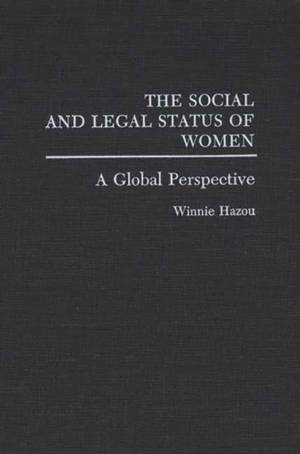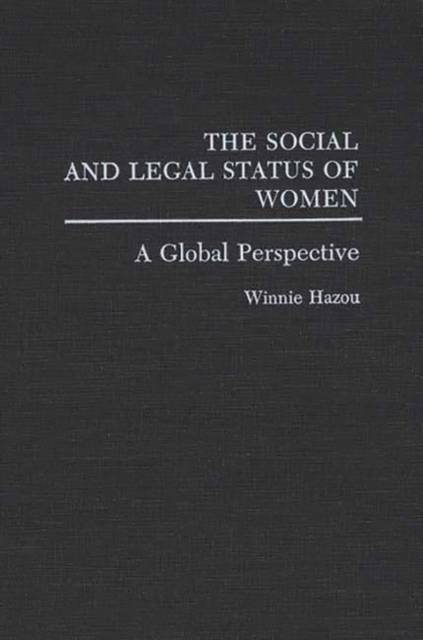
- Retrait gratuit dans votre magasin Club
- 7.000.000 titres dans notre catalogue
- Payer en toute sécurité
- Toujours un magasin près de chez vous
- Retrait gratuit dans votre magasin Club
- 7.000.0000 titres dans notre catalogue
- Payer en toute sécurité
- Toujours un magasin près de chez vous
Description
This book delves into the legal traditions that relegated women to an inferior social and legal status worldwide. Winnie Hazou probes the nature of law, changes in legislation, and the trend of modern law toward a social engineering that effects gender equality. Hazou analyzes changes in major areas of women's lives, such as family, employment, and the acquisition of social power. She presents a global perspective of women's status and discusses international law aimed at eliminating the exploitation and abuse of women. The book highlights five countries, exploring the cultural basis for and social attitudes toward the position of women in each country. Students and scholars of women's studies will find this book a valuable resource.
The book concludes that both national and international law are slowly evolving into an effective tool for the elimination of discrimination against women. In spite of residual traditions, and beliefs across all cultures concerning gender roles, there is great institutional support in governments as well as the United Nations to elevate the status of women. This book combines the sociology of women and the sociology of law to give a global perspective on not only the current position of women but the changes that are occurring in their lives.Spécifications
Parties prenantes
- Auteur(s) :
- Editeur:
Contenu
- Nombre de pages :
- 232
- Langue:
- Anglais
- Collection :
Caractéristiques
- EAN:
- 9780275933623
- Date de parution :
- 26-07-90
- Format:
- Livre relié
- Format numérique:
- Genaaid
- Dimensions :
- 156 mm x 234 mm
- Poids :
- 503 g

Les avis
Nous publions uniquement les avis qui respectent les conditions requises. Consultez nos conditions pour les avis.






